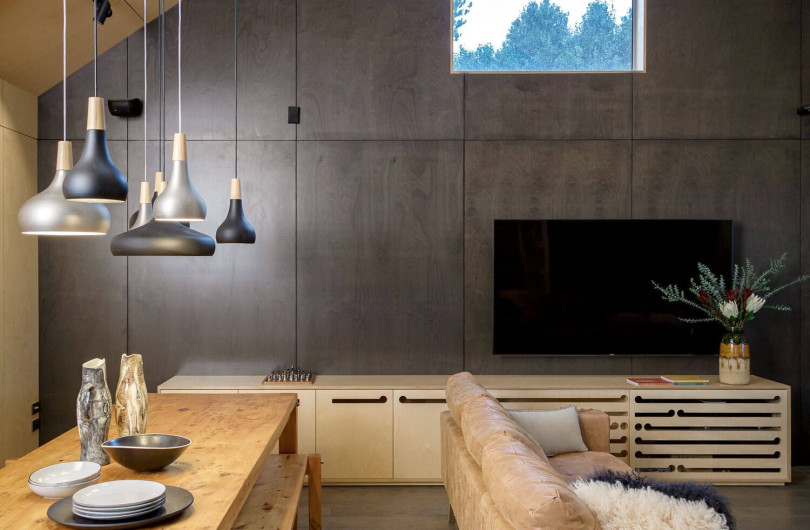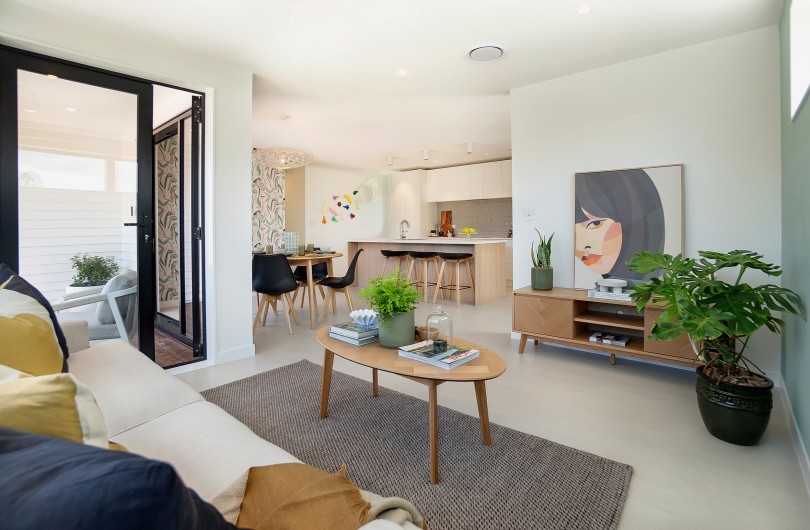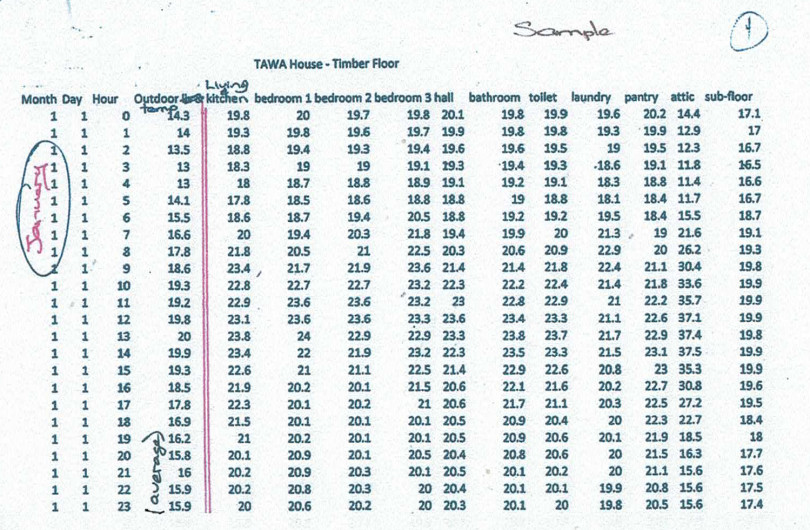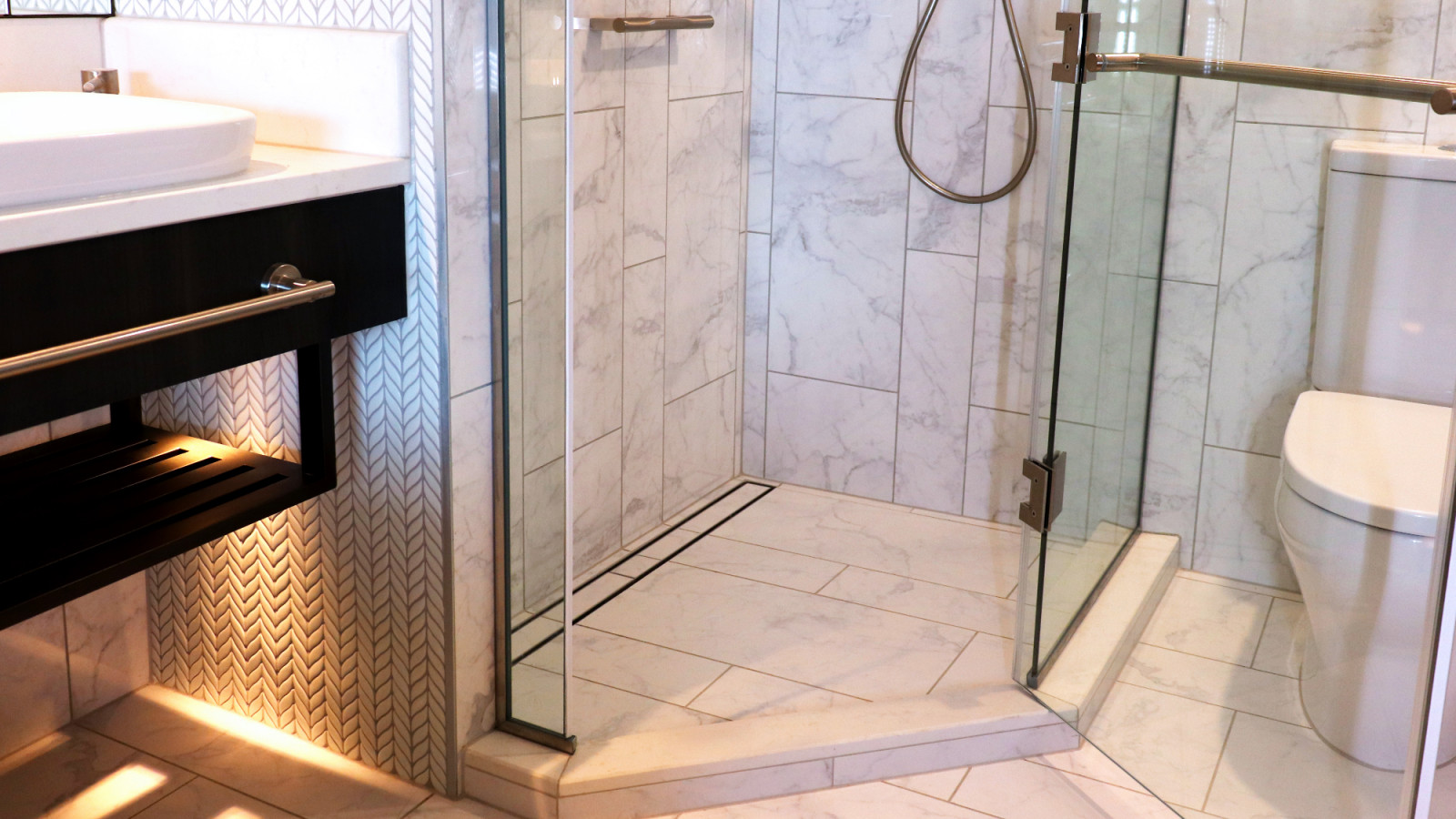According to Stats NZ’s ‘Building Consents Jan 2021’ demand for townhouses, flats and units have increased by over 80% within the past two years. With increased demand for mid to high density housing and constraints on available land, designers and product suppliers have sought systems to maximise the usability of available space.
Bathrooms are being placed under increased pressure as designers look to save space in areas of the dwelling that may not be considered prime living space. The majority of townhouses have ditched the bath with preference for a shower unit instead, however a shower unit can be bulky and close in the space while detracting from the aesthetics. A solution for this would be tiled showers with an elegant glass partition, this opens up the bathroom space with a continuous floor and wall finish, with the inclusion of wall niches it can create a far more user-friendly option.
A traditional tiled shower uses a waterproof membrane system bonded to a leak control flange creating a ‘tanked’ area. Tiles are then laid over the membrane with the appropriate fall towards a channel or point drain. This system is an excellent option and Allproof has built its reputation through a wide range of products and their integration with waterproof membrane systems. However, it has become apparent that there is demand in the market for a tiled waterproof system that provides the same level of assurance as a shower tray.
A stainless steel shower tray creates an impermeable barrier below the tiles that is highly resistant to any movement within the structure. This can become an important factor to consider when creating timber framed multi level dwellings with bathrooms above ground level or any development with intertenancy levels. One scenario that highlights this decision making process is Cordis Hotel in Auckland, even as a steel and concrete structure the designer decided the initial cost of putting tile over trays in each of the 235 bathrooms outweighed the cost associated with the risk of a failure. A leak in one bathroom would ultimately affect two or more rooms with the additional rooms being on the level below, this would greatly impact the revenue stream of the hotel along with the costs of repair.
Specifying a tile over stainless shower tray also provides the assurance of performance and compliance with NZBC clause E3 internal moisture and relevant AS/NZ Standards. A tile over stainless shower tray would be considered a “Preformed Shower Base” (AS 3740-2010; 3.6) needing to be sufficiently recessed into the wall and floor allowing waterproof membranes to be dressed onto the flange surface areas (textured to maximise bonding), it should also be supported to prevent distortion or cracking. Allproof have designed the tray to exceed the minimum fall outlined for ‘Type 1’ showers (AS 3740-2010; 3.13.5) by utilising an engineered base. The tile over stainless tray provides options of a 1:80 (recommended for hob entry) or 1:50 (recommended for level entry) fall which satisfies NZBC E3 3.3.5 which looks to obtain a fall of 1:50 towards the shower drain. The tray has a channel drain built into the system with tile bar options designed to suit varying tile depths and weepage holes allowing subsurface moisture trapped by the stainless tray to track into the waste outlet.
Allproof Stainless steel tile over trays have been developed so that they can be custom made specific to each project while reducing the work and impact on the installer. Each tiled shower tray caters to the unique variables of the project including overall size, shape, entrances/wall upstands, tile depths and grate options. The tray is supplied as a complete unit with the engineered base attached. The production process consists of completing an initial custom form with measurements, Allproof will then follow up with any questions and supply a shop/production drawing for sign off. By using a system with built in fall it removes the need for screeding on site, saving time and costs. The tray is fixed into place and tiles are directly applied following the install guide. The same process can be followed for stainless steel wall niches, a recent addition to the Allproof offering.
References:
Stats NZ: Building consents issued: January 2021
NZBC Clause E3
AS 3740-2010




























 Most Popular
Most Popular Popular Products
Popular Products


